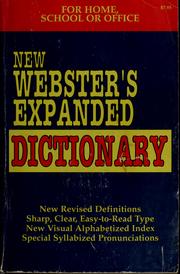
The meaning of this term is still highly contested. It would be fair to say that there is no widely agreed-upon definition or theoretical conception of the term. Perhaps for that reason, it is a term that has been defined in countless ways, over many decades. The concept "information" is of signal importance to all the information disciplines. Information, definition, three worlds, data–information–knowledge–wisdom, DIKW, cybernetics, information theory, feedback, social context Brookes, Michael Buckland, Ian Cornelius, Ronald Day, Richard Derr, Brenda Dervin, Fred Dretske, Jason Farradane, Christopher Fox, Bernd Frohmann, Jonathan Furner, J.A.

Work of these authors is reviewed: Marcia J. The data–information–knowledge–wisdom (DIKW) continuum is also addressed. The impact of Norbert Wiener and Claude Shannon is discussed, as well as the widespread influence of Karl Popper’s ideas. Seven categories of definitions are described: Communicatory or semiotic activity-based (i.e., information as event) propositional structural social multi-type and deconstructionist. Defining information remains such a contested project that any claim to present a unified, singular vision of the topic would be disingenuous. New York, NY: Columbia University Press.A selection of representative definitions of information is drawn from information science and related disciplines, and discussed and compared. The Columbia Encyclopedia in one volume.Oxford University Press.Įxamples of encyclopedias Fowler H.W 2nd revised edition by Gower E. Webster’s Third New International Dictionary.The Compact Edition of the Oxford English Dictionary.Many dictionaries have similar information to encyclopedias.Įxamples of encyclopedic dictionaries There are two main ways of organizing printed encyclopedias: from A to Z (the alphabetical way) or by categories. They include the Great Soviet Encyclopedia and Conservapedia. There are also encyclopedias that cover many topics with one perspective or one cultural bias. Others include the Dictionary of National Biography, the Dictionary of American Naval Fighting Ships, and Black's Law Dictionary. For example, there are encyclopedias of medicine or philosophy. The English language Encyclopædia Britannica and German Brockhaus are general encyclopedias. Some are general and have pages on lots of topics. There are different types of encyclopedias. Other internet encyclopedias accepted writing from non-paying users (users who did not sign in) of the encyclopedia. Some internet encyclopedias allowed their paying customers to submit articles from other encyclopedias. Like dictionaries (which had definitions), these publishers hired hundreds of experts to write articles and read and choose articles. The word, encyclopedia, was put in the title of some encyclopedias.Ĭompanies such as Britannica were started for the purpose of publishing encyclopedias for sale to individuals, and for public use in libraries. Some encyclopedias then put essays on more than one subject in alphabetical order instead of grouping them together by subject. The French Encyclopédie of Denis Diderot was the first that had major parts written by many people from all around the world.Īfter the printing press was invented, dictionaries with long definitions began to be called encyclopedias that were books that has articles or subjects For example, a dictionary of science, if it included essays or paragraphs, it was thought of as an encyclopedia or knowledgeable book on the subject of science.

The name "encyclopedia" is from the 16th century and meant "complete knowledge".

A famous early one was the Natural History by Pliny the Elder.
#Webster encyclopedia series#
Either kind of encyclopedia can inform us on many different topics.īook series were used to summarize all knowledge have been published for thousands of years. The second largest is the Encyclopædia Britannica, which is the largest one that is printed. The largest encyclopedia in the English language is English Wikipedia, which has more than 6 million articles. 21st century encyclopedias are mostly online by Internet. Īll encyclopedias were printed, until the late 20th century when some were on CDs and the Internet. Some are called "encyclopedic dictionaries". An encyclopedia (also known in British English as an encyclopædia) is a collection (usually a book or website) of information.


 0 kommentar(er)
0 kommentar(er)
